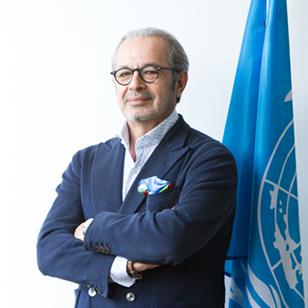Walk the talk: Ditching jargon to enable culture change at the UN
I have decided to change my blog writing style to make it more “real” and less “official and formal”. I guess that is what blog writing is all about. It’s in that spirit that the topic of my piece today is: “The Art of Speaking and Writing non-UNi”. Of course it is simple to say this but difficult to do in the UN. As the saying goes: Thou shall walk the talk, and in this case, let me try to do it myself prior to preaching it to my dear readers.
Is the way we speak and write in the UN a by-product of our organizational culture? Heavily tilted towards the diplomatic world where you have to read between the lines to get the message. Of course, we are not the only international bureaucracy in the world that speaks or writes in convoluted words that mean everything and nothing. Reading a document from our multilateral partners tells us that for sure we are in good company. However, just the fact that in the world of words according to bureaucratic jargons, this is the norm, does not make our practice conducive to what the UN’s mandate is all about: shining lights on the most pressing global issues and rallying the international community to work in tandem to solve problems or prevent the rising of new ones. As the UN’s preamble says: “We the peoples of the United Nations…….” So why not speak and write in a language that the peoples of the world understand what we are saying and writing?
Not long ago, I attended a meeting where the Secretary-General spoke. It was refreshing to hear what he said was what he meant. It was clear, to the point and without the usual fuzzy and jargon induced sentences. In fact, he jokingly challenged the audience to contribute one dollar to the UN financial backup plan, in case anyone uses acronyms. Interestingly if there was a real plan, by the end of the meeting, our cash balance would have been in such a healthy position that a potential reduction of contribution by a member state would have not made a big dent in our budget. So, if the man at the helm of the organization can do this, then shouldn’t the rest of us follow suit?
I never forget when some twenty years ago, my boss told me the secret to good speaking and writing is first to know what you want to say or write. Ever since, I’ve tried my best (but guilty numerous times) to follow this advice. So if I don’t have an opinion on something, I don’t speak or write about it. Sometimes I need to know more, so rather than jumping up with a comment, I ask questions. Although I don’t see a problem with asking questions, frankly at times, I feel that doing so is not a very popular norm in our organizational culture, in a way: it’s better to make a comment rather than ask a question, even if you don’t know much about the topic under discussions.
On occasions I don’t suffer fools and realize that at the end of the day as UN staff we have to be aware of what we say and write. However this limitation should not be the norm but rather the exception. Why should we inhibit ourselves to be frank in what we say or write to each other if the audience is other UN colleagues? Why should we take criticism of our views, whether expressed verbally or on paper, as an attack on our intellectual capability, as long as they are constructive and not personal? Diplomatic “niceties” may belong to the world of diplomats, but not to our community as international civil servants. Most of us are engaged in the type of work that political sensitivity is not among the top job requirements. So let’s practice what my old boss told me: first know what you want to say or write, then say it or write clearly and directly. If we don’t know, then let’s listen or ask questions but please don’t make comments just for the sake of saying or writing something.
